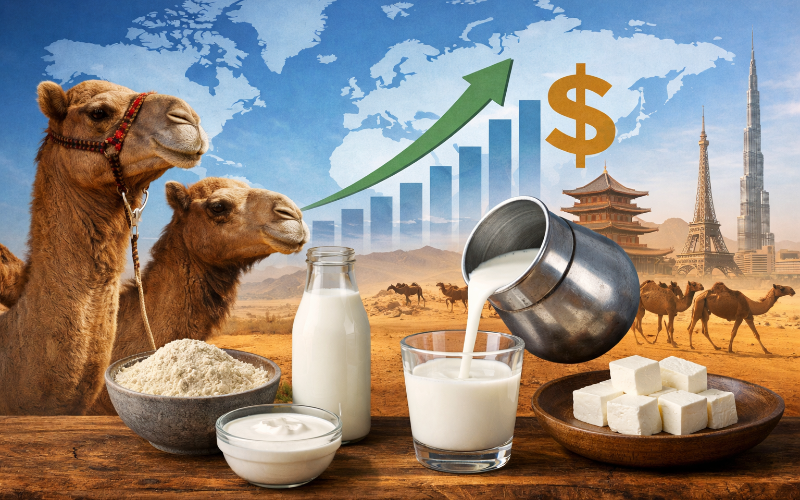Nigeria Opens Doors to Dairy Imports: USDA Report
Source: The DairyNews
In a significant move, the Central Bank of Nigeria (CBN) officially announced the removal of restrictions on sourcing foreign exchange for dairy imports on March 14.

Previously, only six designated companies had the privilege to access government-controlled foreign exchange for importing dairy products. However, the latest circular from the CBN extends this privilege to all importers, signaling a notable shift in Nigeria's dairy import policy.
This decision follows an earlier announcement in October 2023, which lifted foreign exchange restrictions on 43 items, including various food and agricultural products. While this move aims to liberalize trade and foster a more open market environment, the impact on dairy imports remains uncertain.
Despite the lifting of restrictions, challenges persist in the Nigerian dairy market. Domestic dairy product prices remain high, posing affordability concerns for consumers. Additionally, sourcing foreign exchange continues to be a challenge, hindering import activities.
Although the policy change opens avenues for increased dairy imports, the actual uptick may be limited by subdued consumer purchasing power and ongoing difficulties in accessing foreign exchange. Consequently, while the regulatory shift signals a broader liberalization trend, its immediate impact on dairy imports may be tempered by existing market dynamics.
This decision follows an earlier announcement in October 2023, which lifted foreign exchange restrictions on 43 items, including various food and agricultural products. While this move aims to liberalize trade and foster a more open market environment, the impact on dairy imports remains uncertain.
Despite the lifting of restrictions, challenges persist in the Nigerian dairy market. Domestic dairy product prices remain high, posing affordability concerns for consumers. Additionally, sourcing foreign exchange continues to be a challenge, hindering import activities.
Although the policy change opens avenues for increased dairy imports, the actual uptick may be limited by subdued consumer purchasing power and ongoing difficulties in accessing foreign exchange. Consequently, while the regulatory shift signals a broader liberalization trend, its immediate impact on dairy imports may be tempered by existing market dynamics.
Key News of the Week










